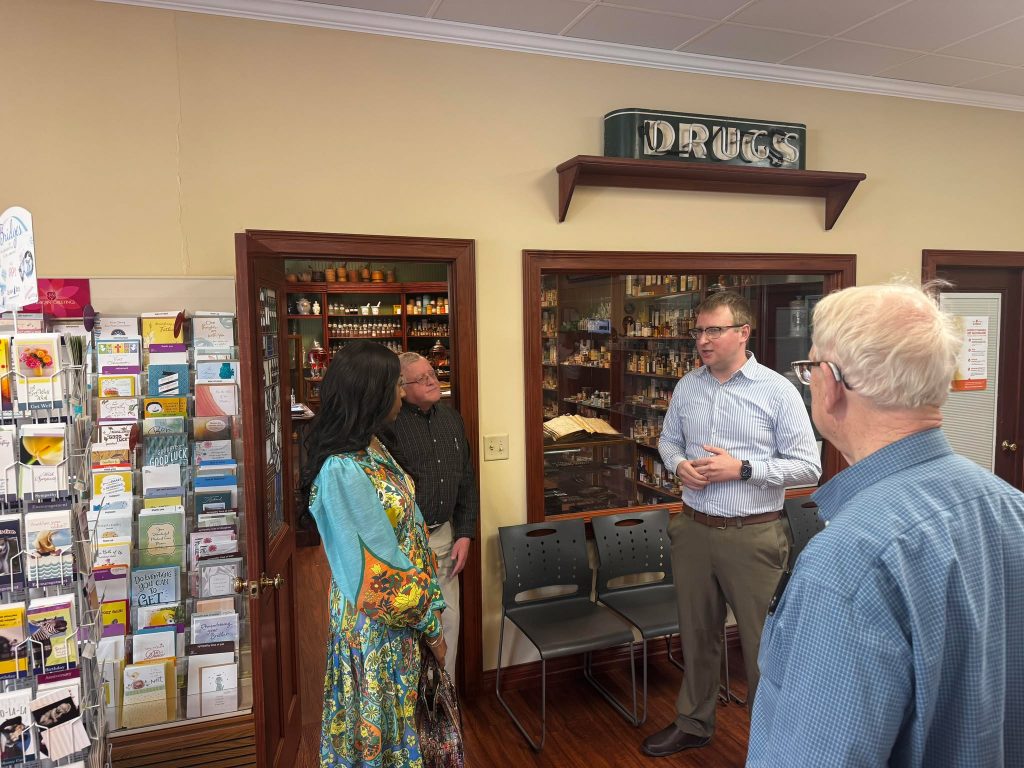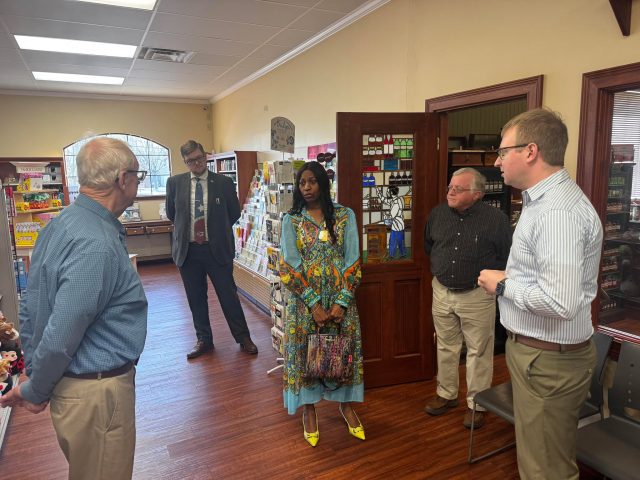
ASHVILLE, OH – State Senator Michele Reynolds visited Ashville Apothecary on April 1st, engaging in discussions with owners Bob and Stephen Mabe about the challenges facing rural and independent pharmacies in Ohio. A central focus of the meeting was the impact of Pharmacy Benefit Management (PBM) practices on these businesses.
The Mabes highlighted the significant financial strain caused by PBMs, which often reimburse pharmacies at rates below the actual cost of medications. This practice forces many small pharmacies to sell drugs at a loss, leading to closures and the potential creation of “pharmacy deserts,” particularly in rural areas of the state.

Discussions centered around proposed legislation that aims to address these issues by requiring PBMs to implement drug cost transparency measures. This would include providing itemized lists of actual drug costs to insurers, plan sponsors, and the superintendent of insurance. The goal is to bring greater transparency to PBM reimbursement practices and alleviate the financial burden on independent pharmacies.
Stephen Mabe expressed deep concern about the future of independent pharmacies, stating, “We truly appreciate the time Senator Reynolds took to learn about our business and the headwinds we face on a daily basis. Anybody who has been to our Ashville location knows we have a museum dedicated to preserving pharmaceutical history. Should the state government, and equally the federal government, not step up, there will need to be a museum to independent pharmacies somewhere as this is unsustainable.”
Senator Reynolds’ visit underscores the growing recognition of the need for legislative intervention to protect independent pharmacies and ensure continued access to prescription medications for Ohio residents. The proposed legislation represents a critical step towards addressing the financial challenges faced by these vital community resources.










